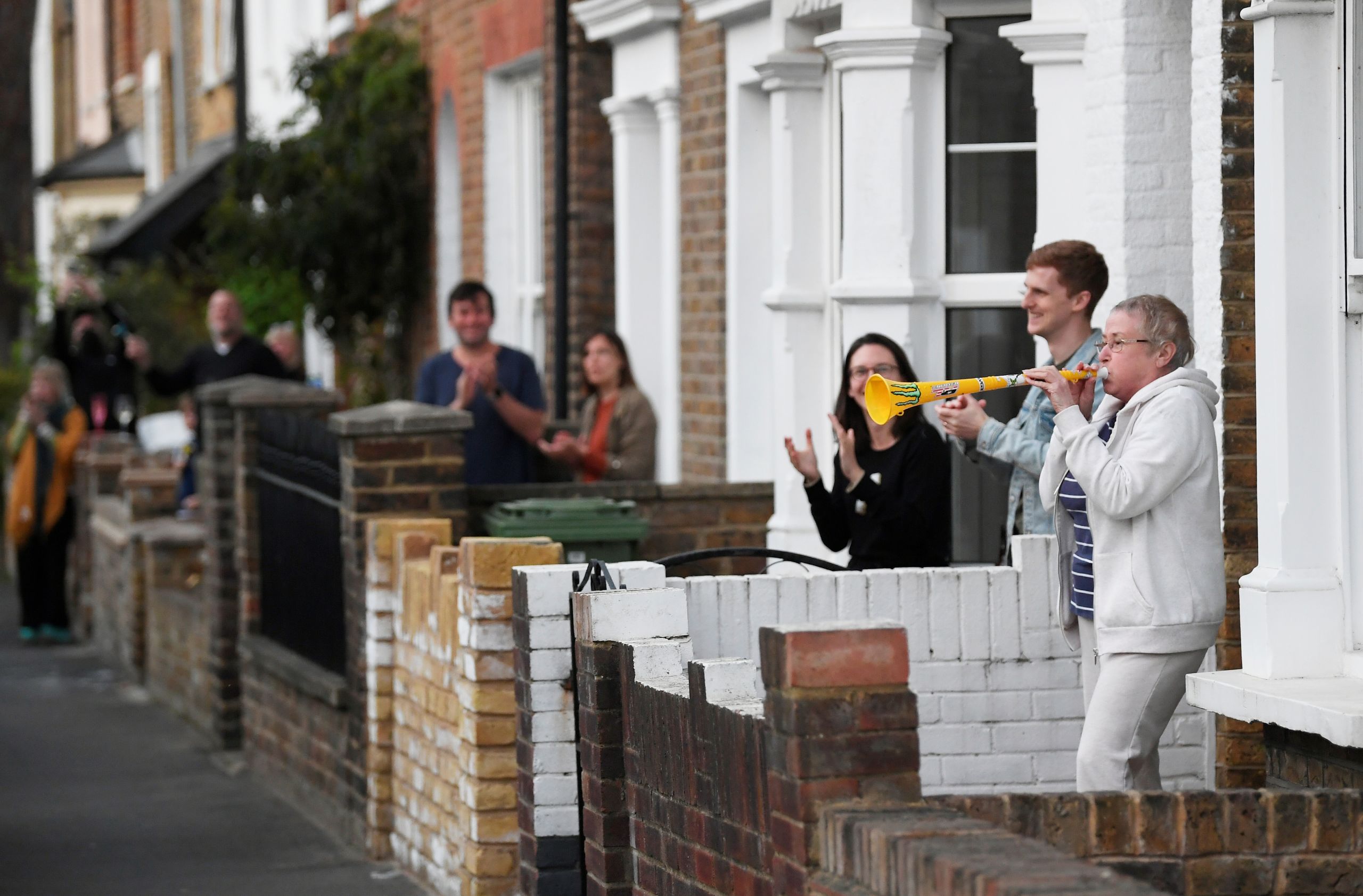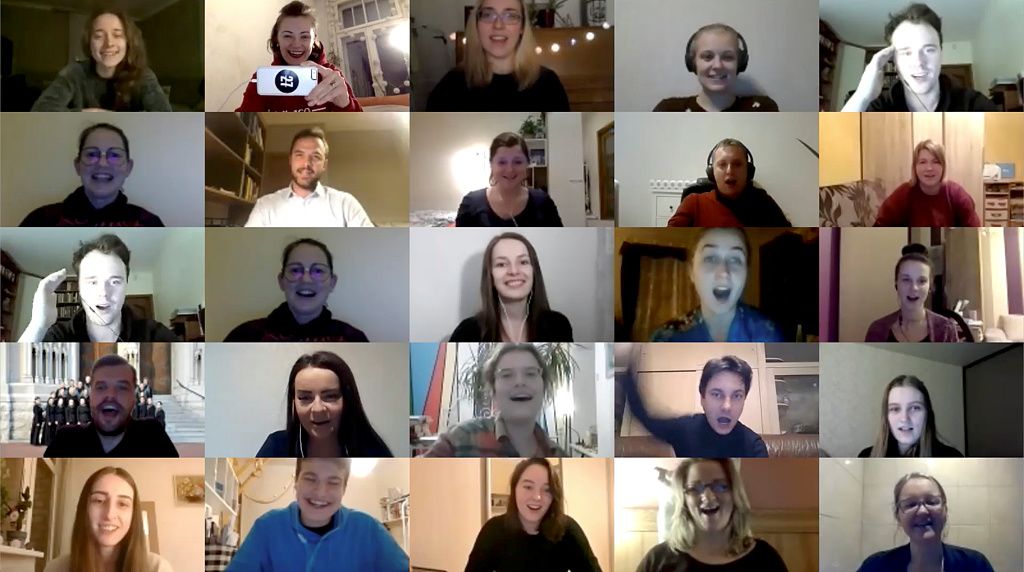A new community
When the world becomes atomized, how do we stick together?

Introduction: Building new communities
When the rules you live by are thrown out of the window (and the window firmly closed behind them), you have to find a new way to live. As lockdown forced people behind closed doors, it wasn't just work that was changed: the fabric of society, the bonds that hold us together, and our communities and networks were stretched and in some cases severed.
But the human need to connect is strong, even when the world isn't changing in worrying new ways. From school to work to charity to health to leisure pursuits, we have had to find ways to work around the new restrictions – and they have often taught us plenty about ourselves and our fellow humans. CGTN Europe spoke to some of those still determined to reach out to other people.
Masks for meals
With food banks facing shortages and closures, and the homeless feeling the acute consequences of the pandemic, one UK art charity is leading a project to turn good food into good causes.
Art organization Migrate Art is leading a charity project with the help of 11 visual artists and illustrators, who have contributed designs to a new series of reversible, reusable masks. The masks are being sold to raise money for Refugee Community Kitchen, which has been feeding displaced people in the UK, France and Belgium since its inception in 2015.
The project, named Masks for Meals, has so far released six of the designs and is aiming to raise 10,000 pounds ($13,300) through the project, which will provide 15,000 hot meals for those in need. CGTN Europe's Zhang Nini finds out more.
The silenced choirs
In the early days of the COVID-19 pandemic, several clusters and some deaths were attributed to choirs singing together in the U.S. and the Netherlands. This quickly meant governments everywhere were advising against singing in groups. The current UK guidance is that professional singers and musicians need to be three meters apart – making many performances impossible. Amateur groups are advised not to sing together at all.
Now scientific research is under way in the UK to find out exactly how dangerous – or otherwise – singing in groups might be. It’s offering hope to choirs everywhere, as CGTN Europe's Catherine Drew reports.

From party entertainer to YouTube sensation
Natalie Austin is a children's party entertainer and vocal coach. In lockdown she wanted to help out frazzled parents so used one of her party characters and set up a YouTube channel to read stories at bedtime. She went viral and now has viewers in the U.S., Spain and Italy.
The outdoor school
At the turn of the 20th century, Germany and the U.S. moved some classes outside to inhibit the plague while maintaining education. With the coronavirus known to be much less communicable in the open air, could this prove a solution a century later? CGTN Europe's Natalie Carney reports from Rosenheim.

Addiction and recovery in lockdown
Lockdown was unpleasant for almost everyone: even if we enjoy solitude, few of us like to be forcibly isolated from the social groups that bring us support and companionship – especially during uncertain times.
But what if your mental health absolutely depended on being able to sit with like-minded people and discuss your feelings? What if the absence of such facetime could cause you to spiral back into destructively negative behaviors, which you already knew from experience could threaten your life?
Such has been the situation facing those with addictions. Many have sought help through rehabilitation and recovery, the ongoing process of meeting up with fellow survivors for mutual support and advice. But as society closed down, those meetings abruptly ended in a world racked with uncertainty. Would this create a perfect storm of relapse and spiralling addictions, or would the networks survive?
CGTN Europe's Gary Parkinson speaks to experts and recovering addicts to find out how they tried to stay on course when their world suddenly veered off its axis.
Podcast: When work stops working
For some, the "new normal" is a blessing – but it will disproportionately affect some more than others, altering the jobs market, careers and people's economic futures.
Unlike previous recessions, during which men lost their jobs first, the heavy impact on the services sector means this time around more women are facing redundancy – while women who do have the option of working from home often experience added domestic pressures such as childcare.
Young people have also been disproportionately hit by the current economic crisis, being more likely to have temporary or flexible contracts.
However, for others, the lockdown has proved an unexpected success, giving them a unique opportunity to create the career of their dreams.
